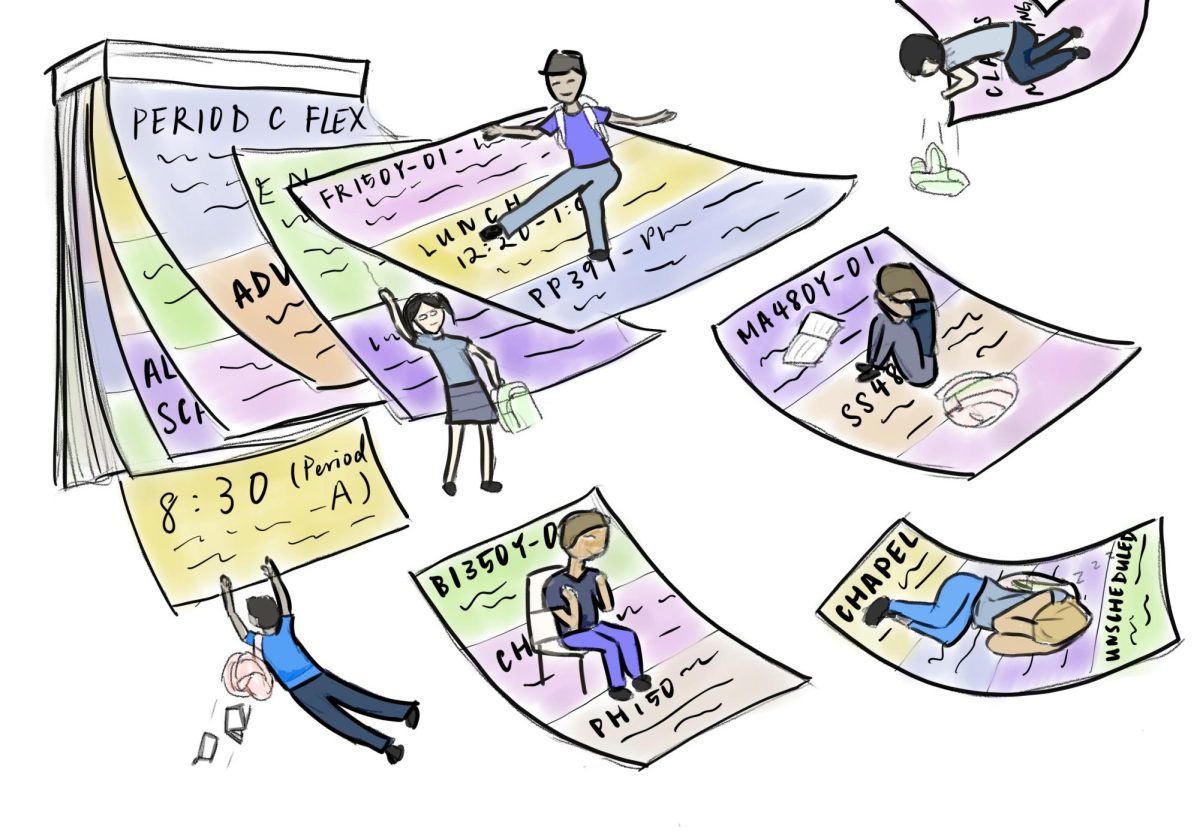The newly modified schedule has brought many changes to our academic lives here at Hotchkiss. Some of these scheduling changes – such as the alternation of lunch periods – significantly improve the effectiveness and quality of the academic day, whereas other changes might not be as desirable.
One of the most pronounced changes is the reduction of class time from 50 minutes last year to 45 minutes, with 10 minute passing periods now condensed to 5 minutes each. It’s worth noting that Wednesday and Saturday classes are 55 minutes long, with each period meeting once on half-days, so that every period has an equal meeting time of 190 minutes per week. This results in a 10 minute loss of class time for each course per week over last year’s schedule.
This change is designed so that classes share time equally; however, a reduction in class time while course content remains the same pressures teachers and students to rush through content faster and pushes a higher load of homework and review time on students. The extra time students gain from redacted class time might be consumed by an increase in homework, possibly rendering this change ineffective or even counterproductive.
Shorter passing periods could be painful if one is walking from the end of the Griswold Science Building to the Math or English wing. Shorter passing periods also compel people to rush, and less time is available for social interactions in between classes, conversations with teachers or peers after class, or opportunities to have a moment of rest at the snack bar.
Another substantial change is the addition of flex periods to replace long classes at the beginning of the day. Last year, classes usually started at 9:00 a.m.; science and art courses had one period early in the morning where they met at 8:30 a.m. and finished class at 9:50 a.m.. However, now these extended blocks have been modified to flex periods placed at the end of the class day on normal weekdays, and right after all-school meetings on Tuesdays and Fridays. This adjustment is intelligent in that all blocks except for Lunches enjoy one flex period, which is equitable. It is noteworthy that all classes now start earlier at 8:30 a.m. with the exception of Wednesday, which starts at 8:50 in the morning.
The notoriously packed lunch schedule from last year has finally experienced significant improvement. Due to last year’s Lunch 1 periods taking place before Lunch 2 on all days, Lunch 1 frequently became overcrowded with students and faculty with double lunch frees, and people with only Lunch 2 free had to wait until 1:00 p.m. to eat. However, this year lunch periods alternate, so no one will have to wait to eat until 1:00 p.m. every day in tremendously congested conditions.
Finally, the 50-minute community time periods formerly on Tuesdays and Saturdays are now both on weekdays. A more spread out arrangement of community time reduces the wariness and lack of enthusiasm students feel about having to listen to people on stage speak for 50 minutes non-stop, and it is also easier for students to view community time as a brief break from a day’s schoolwork and classes. This change is conducive to the administration’s goal of re-engagement, as community time will likely be more appreciated and popular with the school community this year.
Some of these changes increase free time for community members, especially at the end of the day, with most weekday classes ending at 2:45 p.m. and half-day classes ending a few minutes earlier than last year. However, the changes do not come without disadvantages: the condensed length of classes decreases instruction time for the same material, putting higher pressure on both students and teachers. On the other hand, many people will appreciate the new lunch schedule and a shorter academic day, which allow for more time for co-curriculars, club meetings, and completing work.
The overall effects of the new schedule are still unclear, as some people appreciate shorter classes and earlier ending of the day whereas many others struggle with the shortened class and passing periods. I hope that Hotchkiss will continue to evaluate and modify the schedule every year to better accommodate the community’s needs and ensure that the community has the best experience possible at school.





